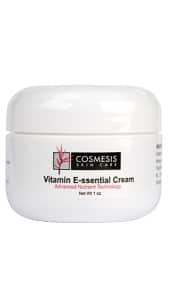- Science & Research
- Science News
- Newsletter
- 2012
- December 25

Newsletter
Newsletter
Reduced Coq10 Levels Associated With Poor Neurologic Outcome And Greater Risk Of Dying Following Cardiac Arrest
Reduced CoQ10 levels associated with poor neurologic outcome and greater risk of dying following cardiac arrest
Tuesday, December 25, 2012. The August, 2012 issue of the journal Resuscitation published the results of a study conducted by researchers at Boston's Beth Israel Deaconess Medical Center which found a reduction in coenzyme Q10 (CoQ10) among patients who died while hospitalized subsequent to resuscitation following cardiac arrest. Cardiac arrest, which occurs when the heart suddenly stops pumping, affects an estimated 350,000 individuals each year in the United States, resulting in a significant incidence of death and neurologic injury. The study included 23 post-arrest patients and 16 healthy controls. Blood samples obtained 24 hours after return of spontaneous circulation in the cardiac arrest group were analyzed for plasma CoQ10 and markers of inflammation, and compared to values obtained from the control subjects. Neurologic function among cardiac arrest survivors was assessed at hospital discharge. Coenzyme Q10 values among cardiac arrest patients averaged less than half of those of healthy subjects. Patients who survived had CoQ10 levels that were nearly twice that of those who died during hospitalization. Similar differences were observed when those with good neurologic outcome were compared to those whose neurologic outcome was poor. "To the best of our knowledge, this is the first report on the plasma levels of CoQ10 in human subjects after cardiac arrest," Michael N. Cocchi and coauthors announce. "The presence of mitochondrial dysfunction in the post-arrest period has been described previously, but the exact components and reasons for dysfunction are not completely known. The possibility that CoQ10 deficiency contributes to mitochondrial dysfunction remains a plausible hypothesis." "Our finding that CoQ10 is low in the early post-arrest period raises the possibility for a potential therapeutic intervention as CoQ10 can be administered exogenously and carries a very favorable risk profile," they write. "Finding a means by which to mitigate neurologic injury after cardiac arrest is of critical importance, and the current study may provide important information about future directions for investigation." | ||||||||||||||||
 | ||||||||||||||||
| ||||||||||||||||
| ||||||||||||||||
 | ||||||||||||||||
| ||||||||||||||||
| ||||||||||||||||
The latest news on aging, nutrition, and vitamins
Lab
Testing
How Life Extension lab testing works











